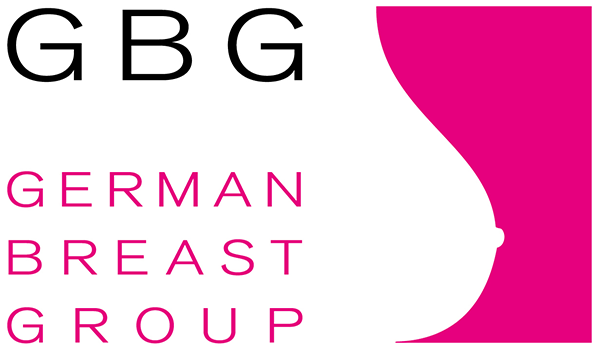A breast cancer diagnosis comes as a shock for most women. However, if detected in the early stages, breast cancer is usually curable today.
When selecting the best therapy option, physicians follow the recommendations of a panel of experts. Breast cancer therapies are tailored to individual patient needs and adjusted repeatedly if necessary.
In addition, clinical trials are conducted to test the latest treatment approaches and innovative drugs, with the aim of continuously improving breast cancer treatment. As a participant in a clinical trial, you will be very closely monitored.
Q&A
With around 71,375 new cases every year, breast cancer is by far the most common cancer in women. Around one percent of all new cases affect men.
Around one in eight women will develop breast cancer during the course of their lives. Almost three in ten are younger than 55 at the time of diagnosis.
Breast cancer centers specialize in the treatment and care of people with breast cancer. They are usually based at a hospital and employ a multi-disciplinary team of specialists who plan and carry out treatment and care. The certification of breast cancer centers guarantees quality of treatment via regular inspections by external experts.
Clinical trials are planned in accordance with international standards, and their quality is verified in advance by the competent higher authorities and ethics committees. Study team leaders with proven experience in the relevant field are responsible for ensuring that studies are conducted properly.
In order to compare therapies, patients are usually randomly assigned to a treatment or control group.
In oncology, the standard therapy is often compared with a new therapy. Where possible, patients are “blinded”, which means they do not know whether they will receive the new therapy or the standard one. In the case of “double-blinded” studies, their physicians do not know either. This practice ensures that the study results are not distorted by the expectations of the patient or the physician. Patients are closely monitored throughout the trial. Further information about clinical trials in oncology is available from the organization German Cancer Aid (Deutsche Krebshilfe).
A breast cancer diagnosis during pregnancy is a very upsetting experience. Fortunately, the disease can usually be treated well even during pregnancy, without endangering the child.
One patient has asked us to publish her personal story in order to support others in the same situation.
17.12.2021
When I was diagnosed with breast cancer, I was 32 years old and my sights were set on having a second child. It was seemingly by a stroke of fate that shortly after the diagnosis an egg implanted in my womb and I was able to give birth to a second healthy child nine months later. This account of my experiences is intended to offer hope and encouragement to women in a similar situation.
It was a Friday when I found out during an ultrasound scan at the fertility center that an egg had implanted in my womb. I spent the whole weekend reading articles about breast cancer in pregnancy, mulling over the pros and cons, and ultimately hoping that I would be able to keep the pregnancy even though it had only just begun. On the Sunday, I finally wrote an email to my oncologist, whose reply was reassuring. He presented my case at the hospital’s tumor board meeting as well as seeking external expertise.
The subsequent discussion with my oncologist allayed my own worst fears and those of my husband. Based on my tumor histology from the punch biopsy, we came to the joint conclusion that I would be able to keep the pregnancy.
The breast-conserving operation was postponed until after the 12th week of pregnancy. This allowed us to wait and see whether the pregnancy would stabilize, which it eventually did.
The breast-conserving operation took place in the 16th week of pregnancy. I felt confident about the operation as all the doctors assured me that they would take care to protect the pregnancy. The radioactive tracing, for example, was carried out on the day of the operation in order to reduce the radiation exposure.
The histology of the surgically removed tumor, the oncotype test and the “black box” of pregnancy made chemotherapy an option that had to be considered. We ultimately decided in favor of chemotherapy. It was started in the 23rd week of pregnancy. Four cycles of EC were administered during the pregnancy. My oncologist said at the time that young women have fewer side-effects. Fortunately, this was also true in my case: no nausea and no vomiting. An ultrasound scan of our unborn child was also performed on treatment days. The pregnancy progressed normally. The nutrient supply via the placenta was always good.
The fetal parameters were within the normal ranges.
The birth of our child was finally induced in the 38th week of pregnancy so that the interval between EC and Taxol would not be too long. The ultrasound scans proved to be correct: Our daughter was born alive and kicking.
I didn't breastfeed her because of the chemotherapy. But she instantly took to the baby formula and has been gaining weight well ever since. All the pediatric examinations show that she is a healthy child – a strong, spirited little girl.
After giving birth, I continued the chemotherapy with 12 cycles of Taxol and am now on the anti-hormone drug Tamoxifen. I’m glad that our little one came into the world at exactly the right time and that we have mastered the journey together.
When I started chemotherapy, I joined a self-help group where I got to know other women who were pregnant at the time of their diagnosis and went on to give birth to healthy children. Talking to them was a great help to me.
That weekend spent reading articles, researching other women’s experiences, and worrying about the pregnancy is indelibly imprinted on my mind, which is why I was particularly keen to record my own experiences. I want to offer you hope and encouragement. I always felt that I was in good hands with my oncologist, who had sought external expertise in addition to conferring with the hospital’s tumor board. I was thankful to be treated at an oncology center that was not out of its depth when faced with cases like mine and made it possible for oncologists, gynecologists and pediatricians to communicate directly with each other. I have already expressed my thanks in person, but I would nevertheless like to conclude this account with the following words:
Thank you to all the doctors and nursing staff who looked after me!



